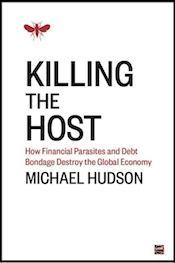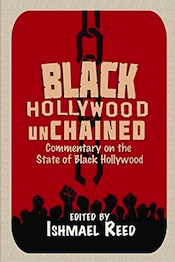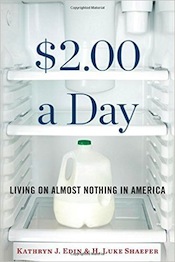 AN IMPORTANT MESSAGE FROM COUNTERPUNCH! Politically, these are treacherous and uncertain times. A discredited president is saddled with a listless economy and a slew of unpopular and illegal wars. The voters rightly hold both parties in contempt. The corporate press is similarly disgraced. Thousands of readers around the globe are flocking to CounterPunch because they know we aren’t in the pockets of corporations or their foundations, and we aren’t beholden to any political party. That’s why you come to CounterPunch and that’s also why we need YOUR support. The need is real. The time is now. Please make a tax-deductible donation today by credit card through our secure online server, via PayPal or by calling 1(800) 840-3683. Note: This annoying box will disappear once we reach our fund drive goal. Thank you for your support!
AN IMPORTANT MESSAGE FROM COUNTERPUNCH! Politically, these are treacherous and uncertain times. A discredited president is saddled with a listless economy and a slew of unpopular and illegal wars. The voters rightly hold both parties in contempt. The corporate press is similarly disgraced. Thousands of readers around the globe are flocking to CounterPunch because they know we aren’t in the pockets of corporations or their foundations, and we aren’t beholden to any political party. That’s why you come to CounterPunch and that’s also why we need YOUR support. The need is real. The time is now. Please make a tax-deductible donation today by credit card through our secure online server, via PayPal or by calling 1(800) 840-3683. Note: This annoying box will disappear once we reach our fund drive goal. Thank you for your support!
If This is a War, Then Black Lives Matter is Losing
Plus ça change …’ say the French; or ‘The more things change, of course, the more they stay the same.’ That thought, with all its despair and wisdom, resonates with particular power when we look at the Black Freedom Struggle, which, despite its ebbs and flows, has a sameness that seems to suspend it in its own time, akin to a Biblical narrative that exists in its own realm, strangely separate from our day-to-day immediacy, yet existing in consciousness. But this is not a metaphysical discussion. No.
It is existential. It is blood and bullets. It is the hard bricks and cold steel of prison. And it’s not just the sameness of things for extended spaces of time, nor its sinister intensification of repression, but the incessant nature of such repression as a bipartisan expression of American hegemony over and antipathy towards, the Black Freedom Struggle that gives it its malevolent character. More
Quantitative Easing Was a Bust; Let’s Try Higher Wages Instead
Why is the economy still in the doldrums after 6 years of zero rates and three rounds of Quantitative Easing?
It's because consumers aren't consuming and there's too much debt. You see, despite the Fed's wacko theories about pumping liquidity into the financial system to make investors feel wealthier, people actually have to buy things to generate growth. And the truth is, consumers have reduced their spending because wages are flat, incomes are falling and many of them are still hanging on by the skin of their teeth. So consumption has been unusually weak. Economist Stephen Roach made a good point in an article at Project Syndicate. He said, “In the 22 quarters since early 2008, real personal-consumption expenditure, which accounts for about 70% of US GDP, has grown at an average annual rate of just 1.1%, easily the weakest period of consumer demand in the post-World War II era.” (It’s also a) “massive slowdown from the pre-crisis pace of 3.6% annual real consumption growth from 1996 to 2007.”
So how is the economy supposed to grow if people aren't buying things? It can't.
More
The Elephant in the Room: Capitalism and Sustainable Development
The term “sustainable” has been used by so many people in so many different contexts that it has lost much of its meaning. It has become a buzzword in political, economic and development circles. But it is not the excessive use of the word that has ultimately rendered it largely meaningless but the fact that too many efforts to achieve sustainable development do not seriously attempt to actually achieve sustainable development. It is too often suggested that we can simply incorporate more environmentally-friendly practices into our daily lives while only tinkering with our consumption habits in order to achieve sustainability. But this simply is not true. Each of us living in wealthy nations must massively, and I mean MASSIVELY, reduce our levels of material consumption if we are to achieve a sustainable ecological footprint. And this reality is the elephant that is too often ignored in discussions about sustainable development.
The belief that we can achieve sustainable development in wealthy nations such as the United States and Canada without dramatically diminishing our levels of material comfort is a form of denial that suggests we can have our cake and eat it too. Such denial is not surprising. After all, the idea of dramatically reducing our material consumption to achieve sustainable development is anathema both to corporations and to consumers who have been indoctrinated to associate success and happiness with material wealth. More
Top Stories
This Week on CounterPunch Radio
David Macaray
An Interview with Alexander Cockburn in 2009

Click here to listen to Heather Gray interview Alexander Cockburn in 2009.
Exclusively in the New Print Issue of CounterPunch
The Populist Violence of Donald Trump:
Joseph Lowndes digs deep into Trump’s nativist rhetoric to disclose a vicious, racially-driven political agenda; Wall Street’s Terrorists Strike Again! Mike Whitney on who made a killing in the latest crash; CNN’s Summer of Lies: Jason Hirthler charts the rightward drift of CNN; Get Up Stand Up: Andrew Smolski documents the legal right to rebel; A New Nepal? Barbara Nimri Aziz reports from Nepal on the prospects for political change in the wake of the earthquakes; Adventures in Xenophobia: David Macaray explores the bitter legacy of the Chinese Exclusion Acts. Plus: Jeffrey St. Clair on Trump L’Oeil Politics; Kristin Kolb on the Ghosts of Wounded Knee; Chris Floyd on Trump as the new Reagan and Lee Ballinger on the horrors of the clothing industry.


























